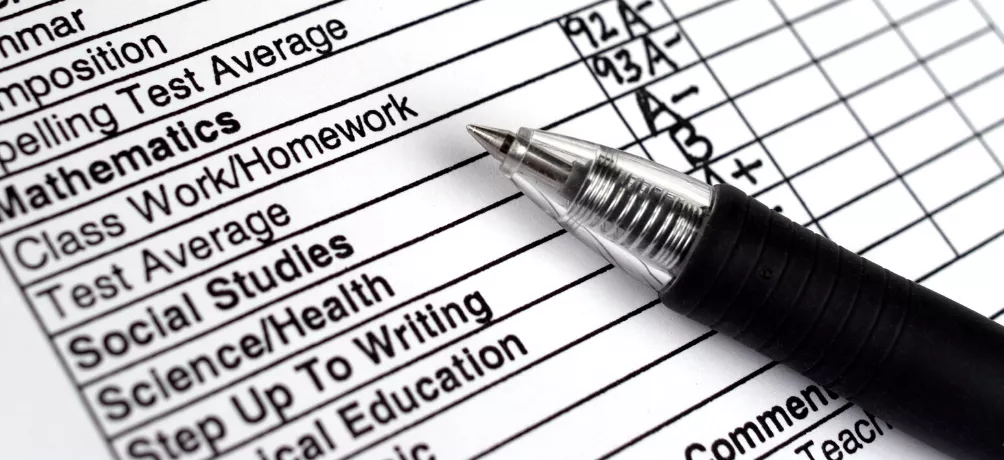Five Tips for Reviewing the Midyear Report Card
By Huntington Learning Center
It’s a brand-new year and a brand-new term of school. That means the midyear report card has come home, which might be a source of stress, a source of pride or a little of both. As Eileen Huntington of Huntington Learning Center says, this is a great time for parents and their children to have open and honest conversations about school.
“We always encourage parents to think of the midyear report card as much more than something they should read through and file away,” says Huntington. “The report card presents an opportunity to review children’s strengths, areas that need attention, study habits and so much more. Most importantly, this time of year is ideal for parents and children to talk about school.”
When reviewing the report card, Huntington offers parents these five tips:
- Focus on progress. Pay attention to progress indicators and benchmarks on the report card to see how your child is moving toward mastery of grade-level standards. Look at the report card prior to this one. How do your child’s grades in each subject compare to those on this report card?
- Talk about your child’s methods. What did your child do to earn that A in English? What led to the C in math? Grades are a measurement of your child’s knowledge, but it’s essential that you dig deeper to understand what your child is or isn’t doing to earn them—and keep up in school.
- Take note of any discussion about time management and organization. Some teachers put comments on the report card about these critical aptitudes, but if they do not, talk with your child about them. Have your child walk you through his or her approaches to staying organized and keeping track of all homework, due dates and other obligations.
- Gauge how your child feels about school. If you’ve noticed a lack of motivation or some negativity about school, open the lines of communication. What is causing your child’s indifference or frustration? Look to the report card for any comments from the teacher about your child’s demeanor and attitude too.
- Pay attention to any remarks about other skills. In today’s complex world, students need a range of abilities to succeed in the 21st-century learning environment. The report card might have a section assessing college-ready and career-ready aptitudes like higher-level thinking, problem-solving and comprehension skills.
Huntington reminds parents to reach out to their child’s teacher about the report card or attend midyear parent-teacher conferences. She adds the importance of being positive and keeping perspective. “Report cards might highlight trouble spots as well as areas of strength, but parents must remember that every student has ups and downs,” says Huntington. “One bad grade—or even several bad grades—does not define your child, and no problem is insurmountable. Whether your child is struggling a little or a lot, report card time is a ‘checkup’ and nothing to be afraid of.”
If your child had a difficult first half of the school year and you’d like to understand what’s going on more thoroughly, call Huntington at 1-800 CAN LEARN. We’ll assess your child’s current skills and identify areas where he or she might need additional help to get back on track.


